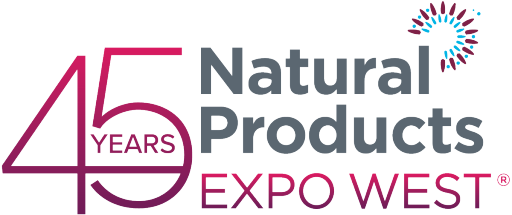Meet our July Trailblazer, Gene Bruno! Gene is Professor Emeritus of Nutraceutical Science at Huntington University of Health Sciences and the Chief Scientific Officer of Nutraland USA, Inc. With graduate degrees in nutrition and herbal medicine, he’s a 45-year veteran of the dietary supplement industry, an award-winning formulator, and an educator in natural products. Gene has crafted natural products for numerous dietary supplement companies, trained retailers and healthcare professionals, and authored articles, books, and textbook chapters on nutrition, herbal medicine, and integrative health. He also hosts The Bioactive Nexus Podcast and The Vitamin Professor Podcast, delving into nutraceutical topics and industry issues.
What are the most common misconceptions people have about our industry, and how would you debunk them?
Without question, the most common misconception that people have about the dietary supplement/nutraceutical industry is that it is unregulated. This misconception likely arose due to bad players who produce poor products and make unreasonable and unsubstantiated claims. People may think this is a result of a lack of regulations. It isn’t. Rather, it is due to a lack of enforcement of those regulations.
Consider the laws and regulations currently governing our industry, including:
- The Food, Drug, and Cosmetic Act of 1938 (FD&C)
- The Nutrition Labeling and Education Act of 1990 (NLEA)
- The Dietary Supplement Health and Education Act of 1994 (DSHEA)
- The Food and Drug Administration Modernization Act of 1997 (FDAMA)
- Current Good Manufacturing Practices (cGMPs)
- The Public Health Security and Bioterrorism Preparedness and Response Act of 2002 (the Bioterrorism Act)
- The Consumer Health Information for Better Nutrition Initiative of 2003 (CHIBNI)
- The Food Allergen Labeling and Consumer Protection Act of 2004 (FALCPA)
- The Dietary Supplement and Nonprescription Drug Consumer Protection Act of 2006
- The Food Safety Modernization Act of 2011 (FSMA)
Clearly, the problem isn’t a lack of regulations. So, why is there insufficient enforcement? During my 45 years in the industry, I’ve spoken with FDA inspectors and asked why the agency isn’t going after these bad players. The answer is always the same: a lack of personnel—not enough money in the budget to hire enough employees to go after the bad guys.
If you could change one thing about our industry, what would it be, and why?
I love this industry, which is why I’ve been part of it for 45 years. At our best, the good players produce products that can help millions of people, positively impacting their health and wellness. By contrast, the bad players produce products that are absolutely worthless, or even harmful. Given my answer to the last question, it isn’t surprising that my answer to this one is to get rid of the bad players. The public sees unscrupulous business practices and outrageous claims made by the bad players and assumes that reflects the dietary supplement industry in general. So, even the good players (those companies who adhere to ethical business practices) end up being guilty by association.
However, based on my response to the previous question, I don’t think this will be accomplished through the FDA and FTC. Rather, I think the good players should collectively call out the bad players. Challenge them to provide substantiation for their bad products and the claims they make about those products. Let the public know that those bad players are not what our industry is all about.
Describe a project or initiative you’re currently working on that you’re particularly passionate about. What makes it stand out?
I’m writing a book called The Vitamin Professor’s Guide to Real Science vs. Marketing Science: Over 120 Evidence-Based Nutraceuticals for Promoting Health & Wellness. This is a project about which I’m incredibly passionate. My basic premise is that the dietary supplement industry is rife with “fairy dust” products that not only contain completely inadequate doses of the nutraceuticals that are supposed to be providing a beneficial effect but all too often do not even provide the right form of the nutraceutical in question. These products rely on “marketing science” to promote their non-existent value, falling under the category of “If you can’t dazzle them with brilliance, baffle them with bullsh*t.”
At the same time, there are many legitimate dietary supplements with the right doses of the right nutraceuticals based on real science, including human clinical research supporting their efficacy. But how do you tell the difference? Real Science vs. Marketing Science provides instruction on how to assess dietary supplements for legitimacy while also providing a guide to over 120 evidence-based nutraceuticals for promoting health and wellness.
What is your go-to karaoke song?
As an avid karaoke singer, I don’t have a single go-to karaoke song because it would be very boring to sing the same song twice a week when I go out to karaoke venues. However, here are my top two favorite songs within different genres:
- Musical theater: “Music of the Night” (Phantom of the Opera) and “If I Were A Rich Man” (Fiddler on the Roof)
- Pop: “Hallelujah” (Rufus Wainwright) and “Piano Man” (Billy Joel)
- Rock: “Two Out of Three Ain’t Bad” (Meatloaf) and “Let it Be” (Beatles)
- Country: “Yesterday When I Was Young” (Roy Clark) and “King of the Road” (Roger Miller)


